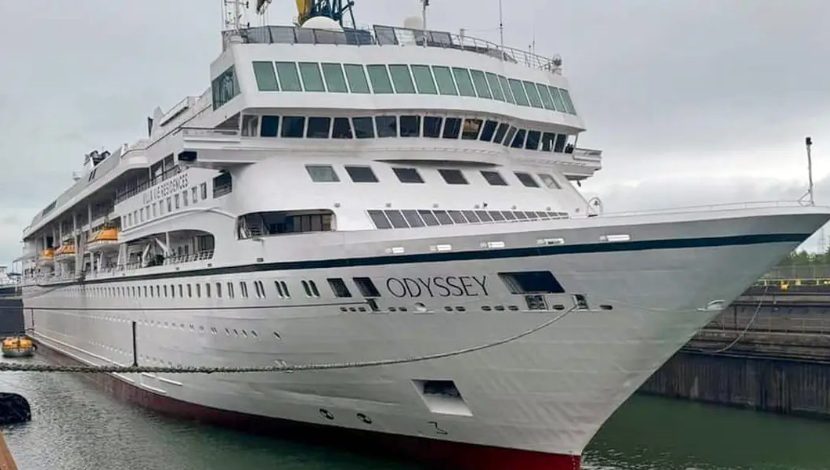Blog
Belfast Cruise Ship Stuck: A Maritime Mishap Explained

The Incident at Belfast Harbor
In recent maritime history, few things are as unsettling for travelers as a cruise ship getting stuck. On [date of incident], Belfast harbor became the center of attention when a cruise ship found itself grounded, creating a logistical challenge for the Port of Belfast and a dilemma for passengers eager to continue their vacation.
Understanding the Situation: What Happened?
A luxury cruise vessel was stuck in Belfast harbor, causing significant delays. The Port of Belfast, known for handling sea traffic efficiently, was suddenly confronted with a blockage in one of its busiest seasons. The issue primarily revolved around navigational misjudgment during docking, compounded by unexpected weather changes, which created a maritime emergency.
Belfast Harbor: A Hub for Cruise Liners
Belfast harbor is one of the most important ports in Northern Ireland. Known for its robust infrastructure, it accommodates both cargo and cruise liners. Over the years, the Belfast cruise terminal has welcomed thousands of cruise passengers, boosting local tourism. However, this incident disrupted sea operations, causing a ripple effect throughout the port and the city’s tourist economy.
The Cruise Ship Grounding: Navigational Challenges
The cruise ship’s captain reported significant navigational issues, which culminated in the vessel becoming lodged in a shallow area of the harbor. Unforeseen weather conditions played a part, but investigations also pointed toward possible human error in steering and docking.
The incident also raised questions about whether the Port Authority Belfast had provided the best guidance to the ship’s crew, especially given the high sea traffic on that day.
The Immediate Response: A Multi-Agency Effort
Once it became clear that the ship was stranded, Belfast’s port authority initiated emergency protocols. A combination of tugboats and advanced ship salvage operations was deployed to assist in freeing the vessel. While this operation was underway, passengers remained aboard, but the uncertainty was unsettling for many who had planned to explore the city.
Belfast maritime emergency teams worked closely with ship officials to monitor conditions and ensure the safety of all onboard. Despite the immediate response, the efforts lasted several hours, with divers working below the waterline to assess the grounding’s impact.
The Ripple Effects: Impact on Passengers and Operations
Cruise Passengers’ Experience
For the hundreds of cruise passengers on board, the stranded cruise led to considerable delays in their itinerary. Many had planned excursions in Northern Ireland, but those plans were left in limbo as the Belfast cruise itinerary disruption took hold.
Passengers shared their experiences on social media, with some expressing frustration at the lack of clear communication from the ship’s crew. Others praised the professionalism of the staff during what was clearly an unexpected situation. Regardless of opinion, it was an undoubtedly stressful experience for all involved.
Local Impact: A Blow to Belfast Tourism
The Belfast cruise terminal has become a crucial point for tourism in Northern Ireland. Visitors from the cruise ship contribute significantly to the local economy, flocking to attractions like the Titanic Belfast and the city’s historic landmarks. However, with the cruise liner stranded, the expected influx of tourists was delayed, impacting local businesses that rely on seasonal foot traffic.
Moreover, the incident raised concerns about the port’s ability to handle such situations quickly and efficiently. Critics argued that the Port of Belfast should have better-prepared strategies to prevent ships from getting into such precarious positions.
| Issue | Impact |
|---|---|
| Ship Grounded in Belfast Harbor | Delayed departure, stranded ship |
| Cruise Passengers’ Delays | Frustration and uncertainty |
| Disrupted Cruise Itinerary | Missed excursions, altered plans |
| Impact on Belfast Tourism | Loss of expected tourist revenue |
Salvage Operations: A Complex Undertaking
Once the ship was grounded, the focus shifted to ship salvage operations. This involved a delicate balancing act between safety and speed. The salvage team had to ensure that lifting or freeing the vessel wouldn’t cause further damage to its hull, which could lead to flooding or sinking.
Divers examined the ship’s position, while the captain and the Belfast Port Authority coordinated efforts to reduce the weight onboard by moving ballast. Ultimately, after several hours of calculated maneuvers, the ship was freed, much to the relief of both passengers and the Port of Belfast.
The Broader Picture: Navigational and Operational Lessons
This incident in Belfast is far from the only time a cruise vessel has faced such challenges. In recent years, there have been similar cases around the world where cruise ships have become grounded due to misjudged navigational paths or unfavorable weather conditions.
Learning from Belfast: What Needs to Change?
There are numerous lessons to be learned from the Belfast harbor incident. For one, the role of navigational technology in modern ships should be evaluated. Despite advanced radar and GPS systems, human error or poor weather can still lead to situations like this one. Enhanced training for ship crews and improved weather monitoring systems could help prevent future mishaps.
Additionally, there is an argument for a more robust port authority response. Belfast authorities responded quickly to the crisis, but further measures to proactively prevent grounding in such congested areas might need to be explored.
Historical Examples of Ship Grounding
- Costa Concordia: Perhaps the most infamous modern example, where human error led to a tragic disaster off the coast of Italy in 2012.
- Norwegian Dawn: In 2015, this cruise ship ran aground near Bermuda, largely due to navigational issues during low tide.
- Sea Diamond: In 2007, this cruise liner sank after striking a volcanic reef near Santorini, Greece, leading to a significant investigation into port management and crew training.
Conclusion: A Sobering Maritime Incident
The Belfast cruise ship stuck incident serves as a reminder of the inherent risks in maritime travel, even in well-managed ports like Belfast. The Belfast port authority and salvage teams worked diligently to resolve the situation, but this mishap will likely prompt changes in operational protocols.
-

 Sport4 months ago
Sport4 months agoIs Christie Sides Married? Exploring the Personal Life of a Renowned Basketball Coach
-

 Blog4 months ago
Blog4 months agoSimone Biles Biological Parents: Understanding Her Journey
-

 Food5 months ago
Food5 months agoNew Restaurants in Canton, CT – 2024
-

 Blog4 months ago
Blog4 months agoUnleash Your Potential at FBYANA Fitness Indonesia Gym
-

 Sport4 months ago
Sport4 months agoSimone Biles Husband Height: A Closer Look at the Athlete’s Power Couple
-

 Food5 months ago
Food5 months agoWhat Gives Amber Ale Its Sweet Flavor?
-

 Celebrity4 months ago
Celebrity4 months agoLarsa Pippen Before and After: A Deep Dive into Her Transformation Over the Years
-

 Celebrity4 months ago
Celebrity4 months agoBianca Censori Spotted Shopping Solo in Beverly Hills: A Style Icon in the Making?

















